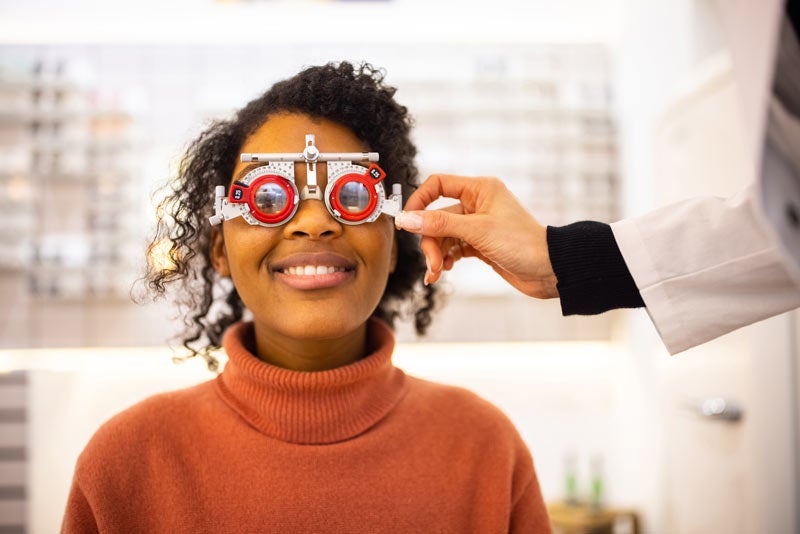What's an eye exam?
During an eye exam, an eye healthcare provider looks at your health history and gives you a series of eye tests. The tests are done to check the health of your eyes. They check for problems that can develop over time, such as glaucoma and macular degeneration. You’ll also be checked to see if your vision needs correcting with prescription lenses. If you already wear lenses, your prescription will be checked to confirm it’s still right for you.
When should you get an eye exam?
When are eye exams needed? The answer varies by age, risk, and symptoms. According to the American Optometric Association:
|
Age |
Low risk for eye problems, no eye symptoms |
Higher risk for eye problems (see below) |
Problems such as visual changes, pain, flashes of light, new floaters, excess tears, or injury to the eye |
|
Ages 18 to 64 |
Every 2 years |
Every 1 to 2 years, or as advised by your eye healthcare provider |
See your eye healthcare provider now |
|
Ages 65 and older |
Every year |
Every year, or as advised by your eye healthcare provider |
See your eye healthcare provider now |
Are you at higher risk for eye problems?
Talk with your eye healthcare provider to find out if you need eye exams more often. You may be at higher risk of certain eye problems. African Americans are at higher risk for glaucoma. People with diabetes are at risk for several eye disorders. These include diabetic retinopathy, glaucoma, and cataracts. You may need eye exams more often if you have any of the below:
-
Diabetes
-
High blood pressure
-
Family history of eye disease, such as glaucoma or macular degeneration
-
Contact lenses
-
Previous eye surgery
And you may need eye exams more often if you:
-
Work in a job that can cause eye injury of any kind
-
Take medicines with side effects that can cause changes in the eyes
-
Have a family history of genetic eye disorders


